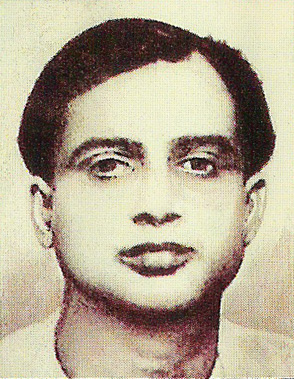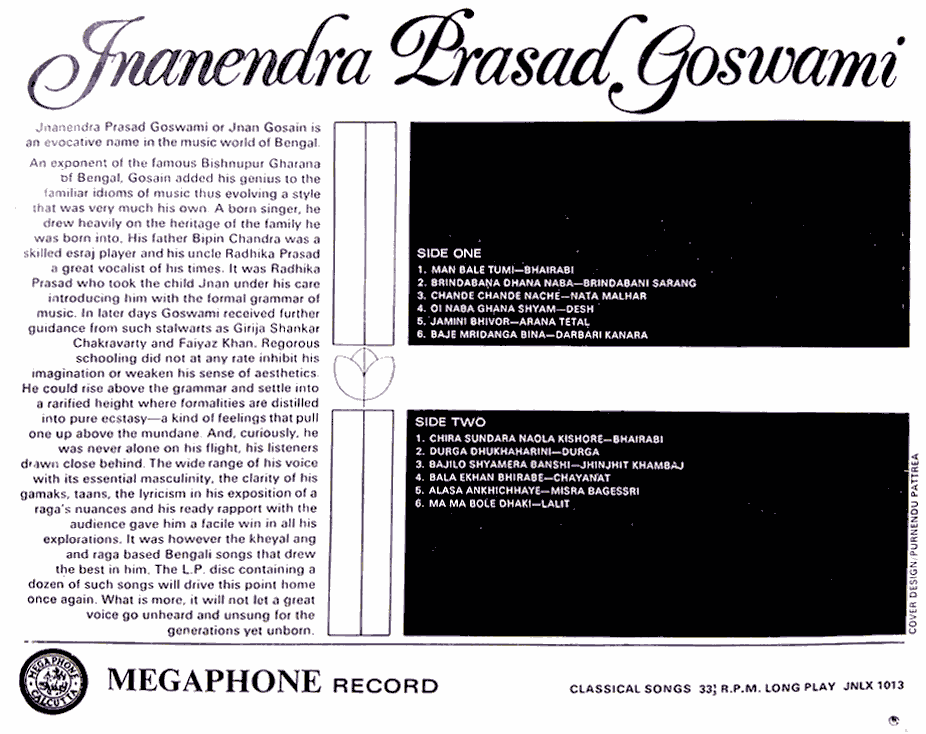
|
Indian Music: Selective Discographies Janendra Prasad Goswami (1902-47)
|

|
List of 78 rpm recordings
Megaphone
Records
1a JNG 390 OMC 4392 Durgaa Dukhhaarinee (raag Durgaa) - Tulsee Lahidee (Bengali)
1b OMC
4393 Tilak Dil ke (raag Tilak kaamod mishra) -
Tulsee Lahidee
2a JNG
1066 MOPH 574 Ban ban dhoodan jaaun (Sarang)
(Hindi)
2b MOPH
575 Kaun karat toree binatee (Bageshri)
3a JNG 1069
OMC 10030-1 Tum jogee mohan pyaare (Bhairav) (Hindi)
3b OMC 10031-1 Shyaam sundarki sundar murliyaa (Puriya) (Hindi)
EP (Bengali)
Megaphone EP (EJNG.1018 = 7TJE.17227 / 7TJE.17228)
Oi Elo Phagun Elo Holi Oli Gunjori Koye Jago Rimi Jhimi Rimi Jhimi Boroshe (Mian Malhar) Jochhona Bichhano Dharatal (Kedara) [words : Tulsi Lahiri]
Acknowledgements |

|
Jnanendra Prosad
Goswami, also known as Jnan Gosain, was the son of esraj player Bipin
Chandra of Vishnupur gharana. After his father's death, he moved to
Bahrampur and trained under Radhika Prosad Goswami (Betia Gharana),
principal of Maharaja Manindra Nandi Sangeet Vishwavidyalaya. This was
between 1910 and 1925. Thereafter he is supposed to have trained for
short periods under Pt Vishnu Digambar Paluskar and Girija Shankar
Chakravarty. He had been praised by Faiyaz Khan Saheb, Abdul Karim Khan
and Omkarnath Thakur and recorded in the 1930s and 40s. |
|
Last updated on 9 May 2006
|